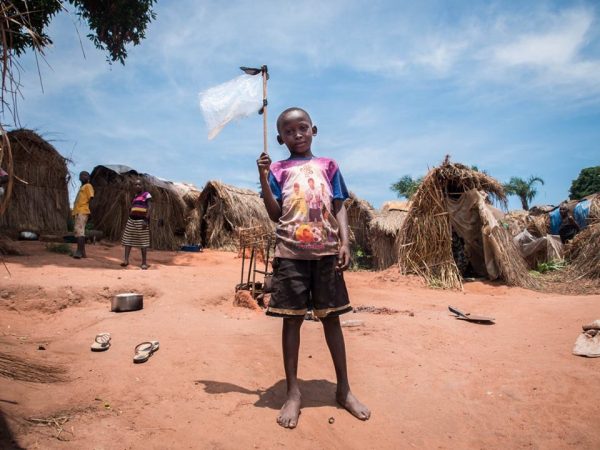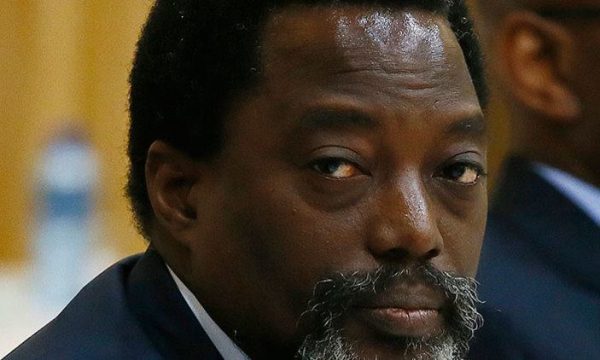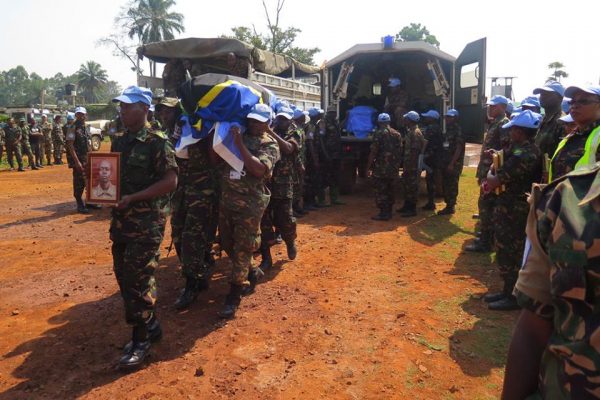The crisis in the Democratic Republic of the Congo continues to escalate, with devastating consequences for its citizens. The unrelenting national-level catastrophe is the most devastating since the Second World War, even surpassing the number of deaths and displaced people resulting from the ongoing Middle East conflicts.
Currently circulating international media is the strange but not altogether surprising report that the country has boycotted the United Nations emergency conference recently convened on its behalf. World leaders came together in Geneva last Friday in an effort to help raise $1.7 billion in emergency funds to address rampant malnutrition and medical needs of the tens of thousands of displaced people. Congolese leadership responded to the conference by claiming the UN’s assessment of the situation was inflated and that officials are “exaggerating” when describing the humanitarian situation.
Reports from the ground, however, clearly show the desperate state of DR Congo, despite what the country’s leaders may want to portray. Official envoys and international journalists have been reporting on the precarious state of affairs for months, and it is difficult to cover up the extent of the suffering.
Today, some 4.5 million Congolese are displaced from their homes—more than in any other country in Africa. Tens of thousands continue to stream out of DR Congo to neighboring countries. Since December 2017 alone, 70,000 have fled fighting in the east to camps in neighboring Uganda. The UN’s High Commissioner for Refugees (UNHCR) estimates some 600,000 Congolese refugees, all dispersed throughout sub-Saharan Africa, are currently awaiting a permanent solution for their plight.

How Did It Get Here?
The disarray in DR Congo is not altogether new by any stretch. For much of the past 25 years, the country has been steeped in violence, stoked by tribal rivalries, political corruption, and government repression. At least six million Congolese have died from conflict-related causes over this period.
In the past two years specifically, the world has clearly witnessed an escalation.
The milestone that kicked off the most recent state of affairs could likely be pinpointed to the country’s current political leadership and its unrelenting grip on power. President Joseph Kabila has delayed elections and used violence, repression, and corruption to entrench his hold on power beyond the end of his constitutionally mandated two-term limit, which was supposed to have ended in 2016.

On the backdrop of a clearly corrupt political hierarchy, there are two distinct trends that are driving the crisis in Congo.
Warring Tribes in an Artificial Country
From the beginning of its independence from colonial rule in the mid-20th century, DR Congo has suffered from a common problem that drives many internal conflicts around the world: there is little unity among the regions and groups that live in the geographical area carved out and designated as an organic “state.” Some 200 distinct ethnicities make up the population of the Congo, many with little to no tribal or linguistic similarities.
Secession attempts that contributed to and protracted the six-year-long Congo Crisis in the 1960s that immediately followed its independence underscored just how disjointed the population was. Mass killings and outright massacres between tribes and rebel groups were routine in the first decade of the Congolese freedom from its European overlords.
Over the past several years, widespread sectarian violence has returned to the country. In Congo’s North Kivu province, a Congolese/Ugandan rebel group known as the Allied Democratic Forces (ADF) has wreaked havoc on the population and has been a primary factor in creating the current refugee crisis, as thousands of people have sought to flee the fighting. While ADF was created as an Islamist group, it is in actuality a conglomerate of several militant groups, with little coherent ideology other than targeting official authorities in Uganda and DR Congo. North Kivu has largely turned into a battleground between UN peacekeepers and ADF rebels, and major clashes continue into the present.

In addition to nationalist groups like those that make up ADF, Congo is also dealing with major tribal-based conflict. Hema and Lendu communities in the northeastern province of Ituri have been waging a brutal series of clashes since last December. Over one hundred people have been killed over these five months in this relatively small province that sits in Congo’s northeast corner. Also a big factor in the current displacement of Congolese citizens, some 200,000 people are estimated to have been forced to flee their homes as a result of the violence in Ituri alone.
The Money Grab
While the armed conflicts that spatter DR Congo have certainly been devastating, simultaneously there is another layer of dysfunction in the country that is much more sinister than the mere warring of factions and clans.
Congo is Africa’s biggest copper producer and the world’s largest source of cobalt, which has tripled in value over the past two years due to demands from various up-and-coming technologies such as electric cars. In addition to those two alloys, the Congo has 70 percent of the world’s coltan, a vital component of electronic components in computers and mobile phones, and more than 30 percent of the world’s diamond reserves.
The newest addition to Congo’s metal repertoire, tin, was discovered in the early 2000s. Mining has historically been the main staple of the country’s economy, but it has suffered horribly in recent years. Part of this phenomenon is due to decreases in foreign investment, as the uncertain legal framework, corruption, and a lack of transparency in government policy have driven companies away. But even more damaging from a national wealth perspective has been the underhanded, covert theft of mining profits from the Congolese people by their corrupt leaders.
Hundreds of millions of dollars of mining revenue have gone missing in recent years, as President Kabila and his family and close associates have amassed fortunes. This is particularly disturbing when considering that Congo’s immense mineral wealth could help address the current emergency and other basic needs of an impoverished population. However, at this point any income from new investments is more likely to end up in the pockets of authorities than back into the country.
Furthermore, the fact that much of DR Congo’s natural resources have been left untouched by legitimate elements has opened the door for their exploitation by criminals. Ironically, the very mining profits that could be used to save the struggling population have been used to fund militant groups throughout the country.
The Road Ahead
Despite this series of ongoing catastrophes in the country, a glimmer of light has shown itself recently for the Congolese people.
The recent emergency conference in Geneva—the one the Congo government boycotted—has already raised over half a billion dollars for the people of DR Congo. The UN’s Emergency Relief Coordinator told reporters after the conference’s conclusion that he is pleased with the progress. From the current pace of things, officials estimate the UN is well on its way to achieving its fundraising goal.
While this money is certainly necessary to address the current status of the country, gathering charity dollars is far from a long-term solution for DR Congo. If any hope for a stable future for the war-ravaged nation exists, it will only come about with the complete removal of the current Kabila-led government. Congolese activists, at home and in the diaspora, have long called for Kabila’s removal, identifying him as the root of the country’s woes, from an economy unprofitable for the people to a lack of even basic internal security. Kabila’s undeniable corruption has led UN officials to also call for the president to step down.
The best we can hope to result from the current exposure of the Congo crisis is an increase of this pressure, to the point that this treacherous regime will be forced to collapse.
















